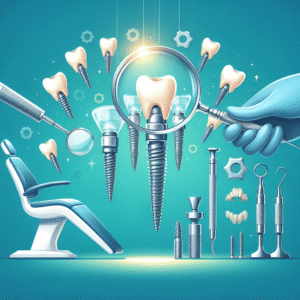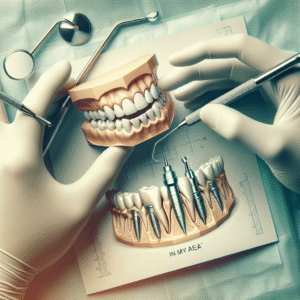All-on-4 Dental Implant Procedure Longevity
The All-on-4 dental implant procedure has revolutionized restorative dentistry by offering a permanent, stable solution for patients with significant tooth loss or decay. This innovative technique provides a full-arch restoration using just four strategically placed implants, making it a highly efficient and cost-effective alternative to traditional full-arch dental implants. One of the most compelling aspects of this treatment is its longevity—when properly cared for, All-on-4 implants can last decades, if not a lifetime.
In this article, we’ll explore the factors that contribute to the durability of All-on-4 implants, compare them to other solutions like implant-supported dentures and zygomatic implants, and discuss the role of bone grafting for dental implants in enhancing their success rate. We’ll also touch on the convenience of teeth-in-a-day / same-day implants, which allow patients to leave the dental office with a fully functional smile in just one visit.
Understanding the All-on-4 Dental Implant Procedure
The All-on-4 technique involves placing four titanium implants in the jawbone—two at the front and two at the back, angled to maximize bone contact. This approach often eliminates the need for extensive bone grafting for dental implants, making it an excellent option for patients with moderate bone loss. Once the implants are secured, a custom-made prosthetic arch is attached, providing immediate function and aesthetics.
Key Advantages of All-on-4 Implants
- Minimally Invasive – Unlike traditional implants that may require multiple surgeries, All-on-4 is designed to minimize surgical intervention.
- Immediate Results – Many patients qualify for teeth-in-a-day / same-day implants, meaning they can leave the clinic with a fully restored smile.
- Bone Preservation – The implants stimulate the jawbone, preventing further deterioration and maintaining facial structure.
- Cost-Effective – Fewer implants and reduced need for bone grafts lower overall treatment costs compared to conventional full-arch dental implants.
How Long Do All-on-4 Implants Last?
The longevity of All-on-4 implants depends on several factors, including patient care, oral hygiene, and the expertise of the dental surgeon. On average, the implants themselves can last 20 to 30 years or more, while the prosthetic teeth may require replacement every 10 to 15 years due to wear and tear.
Factors Influencing Longevity
1. Oral Hygiene and Maintenance
Just like natural teeth, All-on-4 implants require diligent care. Regular brushing, flossing, and professional cleanings prevent peri-implantitis (gum disease around implants), which can compromise their stability.
2. Bone Density and Quality
Patients with sufficient jawbone density experience better osseointegration (fusion of implant and bone). For those with bone loss, bone grafting for dental implants may be necessary before All-on-4 placement.
3. Lifestyle Habits
Smoking and excessive alcohol consumption can hinder healing and increase the risk of implant failure. A healthy lifestyle promotes long-term success.
4. Professional Expertise
An experienced implantologist ensures precise placement, reducing complications that could shorten the lifespan of the implants.
Comparing All-on-4 to Other Full-Arch Solutions
Implant-Supported Dentures vs. All-on-4
While implant-supported dentures also provide stability, they typically require more implants (6-8) and may not offer the same permanence as All-on-4. Removable options can also lead to bone loss over time.
Zygomatic Implants for Severe Bone Loss
For patients with extreme jawbone atrophy, zygomatic implants anchor into the cheekbone (zygoma) instead of the jaw. While effective, this method is more complex and may have a longer recovery period compared to All-on-4.
Traditional Full-Arch Dental Implants
Conventional full-arch restorations often require bone grafts and multiple surgeries, extending treatment time and cost. All-on-4 streamlines the process while maintaining durability.
The Role of Bone Grafting in Implant Longevity
For patients with insufficient bone volume, bone grafting for dental implants may be necessary to ensure a stable foundation. However, one of the key benefits of All-on-4 is its ability to bypass extensive grafting by utilizing available bone more efficiently.
Types of Bone Grafts:
- Autografts (patient’s own bone) – Highest success rate but requires a secondary surgical site.
- Allografts (donor bone) – Eliminates the need for a second surgery.
- Xenografts (animal-derived bone) – Gradually replaced by natural bone over time.
Teeth-in-a-Day: Immediate Function with All-on-4
The teeth-in-a-day / same-day implants concept is a hallmark of the All-on-4 procedure. Patients receive a temporary prosthesis on the same day as surgery, allowing them to eat and speak comfortably while the implants heal. After a few months, a permanent, highly durable prosthetic is placed.
Benefits of Same-Day Implants:
- Instant improvement in quality of life – No lengthy waiting period without teeth.
- Enhanced confidence – Patients leave the clinic with a complete smile.
- Faster adaptation – Immediate function helps patients adjust to their new teeth sooner.
Maximizing the Lifespan of Your All-on-4 Implants
To ensure your All-on-4 implants last as long as possible, follow these best practices:
- Maintain Excellent Oral Hygiene – Use a soft-bristle brush, antimicrobial mouthwash, and floss daily.
- Schedule Regular Dental Visits – Professional cleanings and check-ups detect issues early.
- Avoid Hard or Sticky Foods – Excessive force can damage the prosthetic teeth.
- Quit Smoking – Smoking impedes healing and increases the risk of implant failure.
- Protect Against Teeth Grinding – Wear a nightguard if you suffer from bruxism.
Conclusion
The All-on-4 dental implant procedure offers an exceptional balance of durability, convenience, and affordability for patients seeking a permanent solution to tooth loss. With proper care, these implants can last decades, outperforming traditional implant-supported dentures and reducing the need for bone grafting for dental implants. Innovations like zygomatic implants and teeth-in-a-day / same-day implants further expand treatment options for diverse patient needs.
By choosing an experienced dental professional and committing to long-term maintenance, patients can enjoy a fully functional, natural-looking smile for years to come. Whether you’re considering full-arch dental implants or exploring alternatives, All-on-4 remains one of the most reliable and long-lasting solutions in modern dentistry.
Frequently Asked Questions
1. How long do All-on-4 dental implants typically last?
All-on-4 dental implants can last 20 years or more with proper care, including good oral hygiene and regular dental check-ups.
2. What factors affect the longevity of All-on-4 implants?
Key factors include oral hygiene, lifestyle habits (like smoking), bone density, and regular dental maintenance.
3. Can All-on-4 implants be replaced if they wear out?
Yes, if needed, the prosthetic teeth can be replaced while the implant posts often remain intact if they are still stable.
4. How can I maximize the lifespan of my All-on-4 implants?
Brush and floss daily, avoid chewing hard foods, attend regular dental visits, and follow your dentist’s care instructions.




